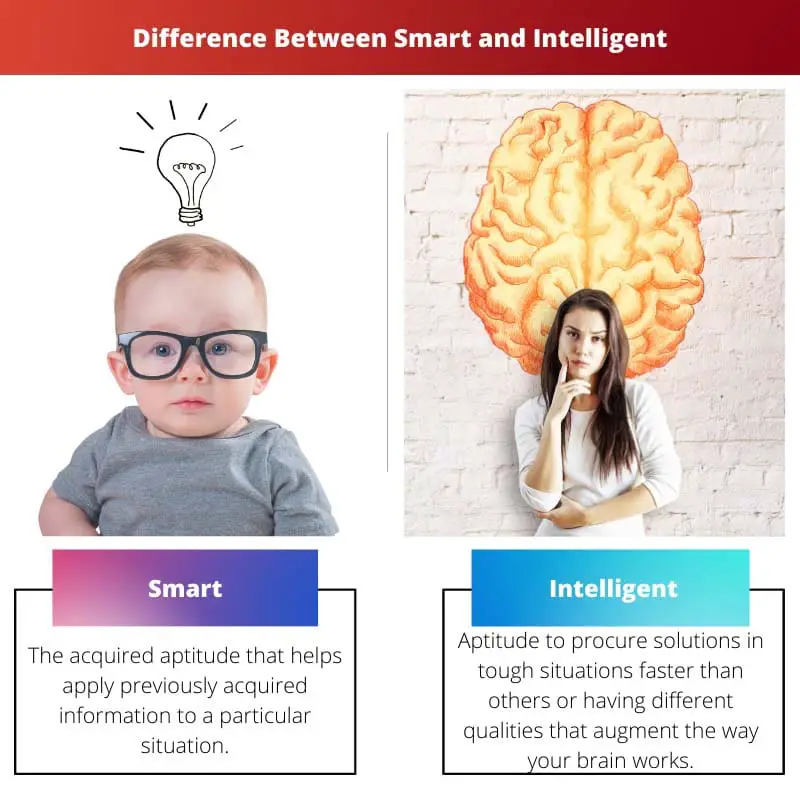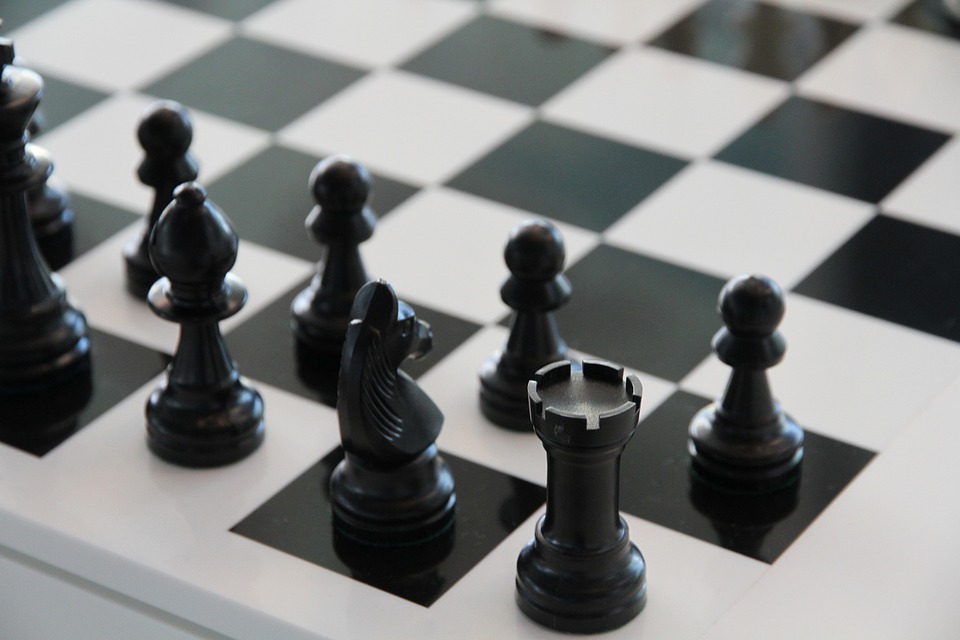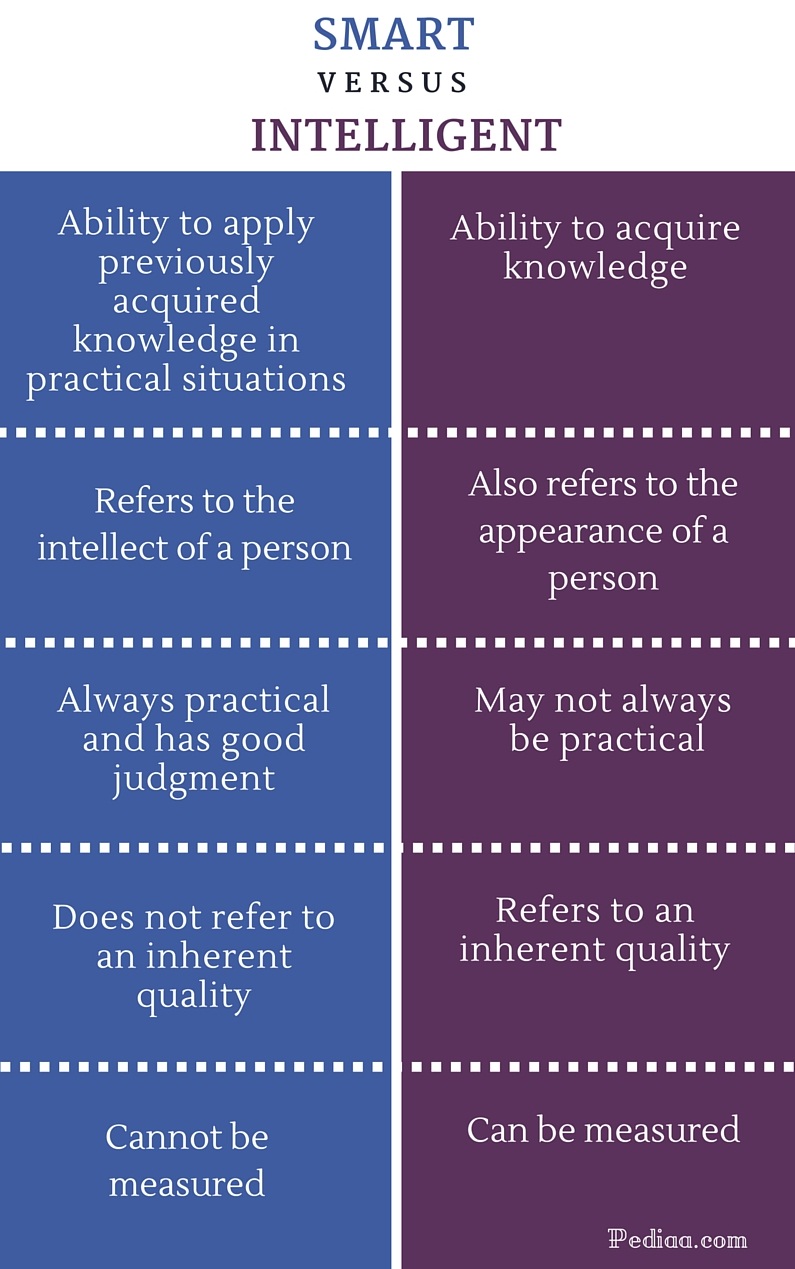Говоря по-русски об умном человеке, мы можем назвать его умным, сообразительным, разумным, расчетливым, выдающимся и т. д. В английском языке тоже есть несколько способов называть человека умным: smart, clever, intelligent, bright, brilliant — рассмотрим подробнее разницу между этими словами.
Smart — это может быть «умный» в общем, нейтральном смысле, а в более узком значении — обладающий большими знаниями. Если я много читаю, знаю таблицу Менделеева, формулы по физике, столицы всех стран — это значит, что я smart.
She’s one of the smartest kids in the class. — Она одна из самых умных детей в классе.
Bobby is so smart, he knows more than our teacher. — Бобби такой умный, он знает больше, чем наш учитель.
У слова smart может быть ироничный или даже издевательский оттенок, как и у «умный», «умник» в русском языке.
Why aren’t you rich if you’re so smart? — Почему же ты не богатый, если ты такой умный?
Также есть разговорные выражения
- book smart — почерпнувший знания из книг, но плохо приспособленный к жизни в реальном мире.
- street smart — «наученный улицей, жизнью», но не начитанный.
He’s book smart but he can’t even boil an egg. — Он начитанный, но даже яйцо сварить не может.
He had a hard childhood, so he is really street smart. — У него было трудное детство, так что он действительно научен жизнью.
2. Clever — умный, сообразительный, находчивый.
Часто слова smart и clever используются как синонимы, то есть как «умный» в общем смысле. В более узком применении clever — это сообразительный, возможно даже хитрый. Clever person может не быть начитанным, но хорошо соображает. Clever plan — это умный, неожиданный, творчески продуманный план. Clever trick — это ловкий, хитрый трюк (здесь у clever немного негативный оттенок).
He is a clever man: he turned a childhood hobby into a profession. — Он умный человек, он сделал детское увлечение своей профессией.
Clever people are good at solving problems. — Умные люди хорошо справляются с решением проблем.
3. Intelligent — умный, разумный, обладающий сильным интеллектом, интеллектуал
Это у этого слова научный оттенок. Если человек intelligent, значит у него хорошие умственные и аналитические способности. Он не обязательно начитан, эрудирован. Можно скачать, что intelligent person — это интеллектуал в значении «человек с хорошими интеллектуальными способностями» (под интеллектуалами иногда понимают людей с широкими познаниями, что не совсем точно). Также intelligent — это «разумный» или «умный», когда речь идет о животных.
Intelligent people have brainpower but it’s useless without practical knowledge and skills. — Интеллектуалы обладают высоким интеллектом, но он бесполезен без практических знаний и умений.
No intelligent life forms have been found on the planet. — На планете не были обнаружены разумные формы жизни.
Примечание: существительное intelligence имеет два непохожих значения: 1) интеллект, способность к обучению 2) разведданные, разведслужба.
4. Bright — светлая голова, способный, одаренный человек.
Часто так говорят об одаренных, способных детях, учениках.
They were bright children, always asking questions. — Они были способными детьми, всегда задавали вопросы.
He’s a bright enough student — he just lacks motivation. — Он достаточно способный студент, ему просто недостает мотивации.
5. Brilliant — блестящий, выдающийся
Brilliant person — это человек экстраординарных, выдающихся способностей, таланта, ума, интеллекта. Речь может идти не только именно об уме, способностей в науке, но и о таланте в спорте, ремесле и т. д. Также встречаются словосочетания brilliant plan — блестящий план, brilliant career — блестящая карьера.
She was a brilliant scientist. — Она была выдающимся ученым.
He was one of the most brilliant artists of his time. — Он был одним из наиболее выдающихся художников своего времени.
Заключение: разница между Smart, Clever, Intelligent, Bright, Brilliant
Подведем итоги.
- Smart и clever могут значить «умный» в самом общем смысле, но обычно smart — это умный-начитанный, а clever — умный-сообразительный.
- Intelligent — это обладающий хорошими способности к обучению и анализу.
- Bright — способный, подающий надежды.
- Brilliant — выдающийся, не только в чем-то интеллектуальном, но и в разных профессиях.
Здравствуйте! Меня зовут Сергей Ним, я автор этого сайта, а также книг, курсов, видеоуроков по английскому языку.
Подпишитесь на мой Телеграм-канал, чтобы узнавать о новых видео, материалах по английскому языку.
У меня также есть канал на YouTube, где я регулярно публикую свои видео.
Similar meaning words
mutual synonyms sentence examples
Intelligent
Intelligent adjective — Having or showing quickness of mind.
Usage example: his intelligent response to the emergency averted a disaster
Show all Definitions
Synonyms for Intelligent
Antonyms for Intelligent
Smart is a synonym for intelligent in clever topic. In some cases you can use «Smart» instead the word «Intelligent» as an adjective or a noun, when it comes to topics like ability, keen, property, shrewd. informal substitute
Nearby Words: intelligence, intellect, intelligently
Smart
Smart adjective — Having or showing a practical cleverness or judgment.
Usage example: a smart investment that has really paid off
Show all Definitions
Synonyms for Smart
Antonyms for Smart
Intelligent is a synonym for smart in clever topic. You can use «Intelligent» instead an adjective «Smart», if it concerns topics such as ability, keen, bright, shrewd. popular alternative
Nearby Words: smarten, smartness, smartly
Как выбрать правильное слово?
В русском языке – около 100 синонимов слова «умный», в английском – картина примерно такая же. Если не хуже. Сейчас будем учиться ориентироваться среди всего многообразия синонимов и выбирать точное слово.
Самое банальное, что я могу сделать – это дать список десятка — другого синонимов слова «умный» с переводом на русский язык, и предложить вам выучить все эти слова.
Но только с моей стороны это будет халтура, и вам этот список не поможет: от переизбытка информации вы так и будете ограничиваться банальным «школьным» clever. И ваш словарный запас богаче не станет.
Мы будем держаться принципа- «зубрить поменьше, а разных «умных» слов применять побольше».
- Smart
Самый простой и применимый совет: в любой непонятной ситуации используйте прилагательное – smart.
Она милое, употребимое и уместное в любом контексте, когда мы говорим о человеке, идее, решении, подходе или технике. То есть smart используется, как для характеристик людей, так и неодушевленных понятий. И контекст этот всегда позитивный.
В принципе, дальше можно не читать, smart – «умный» на все случаи жизни.
Еще, кстати, любопытный факт: ведущие западные маркетологи пророчат, что прилагательное smart станет таким же популярным как green при продвижении полезных, инновационных и продуктов и услуг. То есть раньше люди с готовностью доставали кошелек, когда им обещали что-то здоровое, экологичное, естественное – то есть green.
Сейчас мы будем охотнее расставаться с деньгами, когда услышим – smart. Ну, поживем- увидим.
Is Smart the new Green?
A new generation of eco entrepreneurs introduce ‘Smart Living’
- Clever
А ведь еще совсем недавно, clever лидировал по популярности. А потом что-то пошло не так, и clever начал сдавать позиции. Главным образом, это произошло из-за того, что у прилагательного clever не всегда позитивная коннотация. Ой, сори! Не всегда позитивный и дружелюбный оттенок в значении. У нас в русском это что-то типа чуть ехидного «умник», «хитрован», «хитрожо …».
Этого негатива может и не быть, но небольшая червоточинка в слове есть. Просто знайте о ней.
Быть clever значит – обладать знаниями и уметь их эффективно использовать в трудных ситуациях. Возможно, чересчур ловка и коварно.
- Intelligent
Это человек, который стал умным в результате образования и воспитания, эрудированный, интеллектуальный. Нас почему-то учили, что intelligent не имеет отношения в нашему, привычному — интеллигентный. И совершенно зря, кто тогда интеллигент – как не образованный и не воспитанный человек?
- Wise
Официальное значение wise находится где-то на стыке «мудрый» и «разумный».
A clever person solves the problem. A wise person avoids the problem.
Умный решает проблемы, мудрый разумный избегает их.
Считается, что эти слова принадлежат Альберту Энштейну, так или иначе, эта фраза отлично иллюстрирует значение слова wise.
- Witty
Это мой любимчик. Witty – умный, остроумный, смекалистый, есть в этом слове что-то доброе, позитивное и разбитное. Может использоваться и для описания людей, и для описания плодов их трудов.
- Brainy
Тут все просто, brain – мозг, соответственно, brainy – мозговитый, смышленый, очень способный, одаренный.
Логично, что это прилагательное применимо только для описания людей.
- Bright
Основное значение этого слова – «яркий», «блестящий», а потом появилось переносное значение – «смышленый», «живой», «способный», «находчивый».
Вот как-то так. Слов много, но разобраться не так уж и сложно.
Смело и дерзко используйте разные слова, сочетайте их, говорите ярко и образно!
Но не забывайте, что всем этим «премудростям» — грош цена, если вы не используете их в разговорной речи)))) Согласны? Тогда вам сюда: Английский квест в Праге
А самый простой способо «прокачать» разговорные навыки, участвовать в разговорном марафоне
Автор: Анна Антонова
This website uses cookies to improve your experience. We’ll assume you’re ok with this, but you can opt-out if you wish.Accept Reject Read More
Многие думают, что слова smart, clever и intelligent взаимозаменяемы, однако разница между ними все-таки есть.
Intelligence – это интеллект, способность обучаться и усваивать новый опыт, то, с чем человек рождается и что напрямую зависит от генетики.
IQ (intelligence quotient), например, это коэффициент измерения интеллекта, измеряющий способности человека к обучению. Слово intelligence также используется, когда мы говорим о способностях в чем-то, математике, например. Таким образом, an intelligent person – это человек, владеющий интеллектом, умный, способный, думающий и анализирующий.
Мы также можем использовать intelligent, когда говорим о технологиях, связанных с artificial intelligence – искусственным интеллектом, или формах жизни, наделенных интеллектом.
Человек, которого мы можем назвать clever, всегда знает, как выйти из трудных ситуаций, используя свой интеллект (intelligence), креативность, оригинальность мышления и изобретательность. Clever подразумевает быстроту в обучении или понимании, иногда связанную с поверхностью такой быстроты.
Smart же употребляется, когда мы говорим о человеке, умном в “житейских” вопросах, в основном касательно принятия решений, действий и эмоционального опыта. Это также может быть “умный” в смысле обладания разнообразными знаниями, кругозора. Также, если мы говорим об остроумии или умных мыслях, мы используем smart, intelligent не подойдет. В последнее десятилетие наблюдается тенденция использовать слово smart также в отношении “умных” вещей: smartphones, smart home (= “умный дом“).
Сlever и smart могут быть вполне взаимозаменяемы, хотя оба иногда могут нести отрицательную окраску: clever – когда мы говорим о хитром, предусмотрительном человеке, а smart фигурирует в словосочетании smart ass – “умник”.
Smart and intelligent are behavioural adjectives used to describe a person’s qualities. It is often found that both words seem to be interchangeable, but that is untrue.
There is a difference between the meaning and use of the words.
Key Takeaways
- Smart refers to the ability to understand and apply knowledge quickly, often implying practical problem-solving skills and adaptability.
- An intelligent person is described as able to process complex information, analyze data, and think abstractly, often implying a high level of cognitive ability and reasoning.
- The main difference between smart and intelligent is the focus on practical problem-solving and adaptability for smart individuals, while intelligence emphasizes cognitive ability and abstract thinking.
The difference between smart and intelligent is the origin of the two. While smartness is a quality that comes through learning and adopting the learned behaviour, intelligence is an inborn quality and acquired trait.
Want to save this article for later? Click the heart in the bottom right corner to save to your own articles box!
Smart is a learned behaviour. It is a behaviour that can be adopted over time.
Whereas, Intelligence is an inherent quality. People are born with it.
Being smart can be defined as an acquired aptitude that helps apply previously acquired information to a particular situation. Intelligence is the aptitude to procure solutions in challenging conditions faster than others or having different qualities that augment how your brain works.
Comparison Table
| Parameter of Comparison | Smart | Intelligent |
|---|---|---|
| Definition | The acquired aptitude helps apply previously acquired information to a particular situation. | Aptitude to procure solutions in challenging situations faster than others or having different qualities augmenting your brain’s work. |
| Nature | Practical, objective, applied, and hands-on. | Subjective, complex, innate, and comprehensive. |
| Origin | Comes through learning. It is a trait that is acquired from learning. | Inborn trait. It is a quality that comes naturally to a person. |
| Measurement | Smartness cannot be measured. | Intelligence can be measured with IQ tests. |
| Refers to | Appearance, day-to-day behaviour, and application of previously acquired knowledge in the present situation. | This refers to the ability to gain knowledge or information quickly and the ability to reason. |
Who is Smart?
“Smart” refers to learned interpretations like making intelligent, emotional or business decisions. Smart is an earned status.
Studying, reading, learning, and educating oneself about a particular subject or topic makes the person smarter in that topic.
Smart can also be related to sarcasm. A person can be deemed ‘smart’ if he/she gives witty or sarcastic answers or makes sardonic comments in a conversation.
While describing appearances, ‘smart’ is a frequently used word. We often hear comments like, “she is a smart dresser” or “you look smart today.”
It simply means that the person has dressed aptly for the situation and is looking exceptionally well. This never implies that the person is an intelligent dresser.
Smartness implies adapting to different conditions and situations swiftly and quickly. It is used in day-to-day living situations and is seen to be a practical, hands-on, and desirable quality.
The word brilliant gives birth to words like- ‘street-smart’ and ‘book-smart’.
Street-smart is an expression that describes people who can adapt to all kinds of neighbourhoods, learn the workings of their surroundings, and deal with all sorts of personalities confidently and practically. Street smartness arises from experiencing situations and learning by almost adjusting to different conditions.
Book-smart is an expression to describe people who gain knowledge through studying and reading books rather than learning from practical situations.
An intelligent person possesses the following traits:
- Apt judgment skills
- Practical skills
- Adaptive in nature
Who is Intelligent?
Derived from the word ‘intelligence’, intelligent is an adjective. It is the capability to obtain and apply knowledge, information, and skills.
Intelligence is an inherent quality, a quality with which one is born. The measurement of one’s intelligence can be done through IQ tests.
A person can attain knowledge and process it.
Being intelligent is deemed an outstanding trait but isn’t thought to be a practical one as the highly intellectual mind isn’t something everyone can understand.
Intelligence is an innate quality and is usually inherited. Our genetic structure gives birth to it.
Thus, no individual efforts are required to be an intelligent person. Instead, the inherent intelligence in a person can be polished by gaining knowledge and making good use of it.
Nevertheless, only intelligence is not enough to round off the personality of anyone. Intelligence does not deem a person witty, intelligent, clever, or sarcastic.
It only refers to the capability of obtaining knowledge efficiently.
Intelligence does not refer to the capability of a person to apply the acquired knowledge to real-life, practical situations. Thus, it is said that some intelligent people might not be efficient.
People with high-level intelligence are mostly highly complex and impractical. They’re thus also absent-minded in some cases.
An intelligent person possesses the following traits:
- Obtains and comprehends new concepts swiftly and easily
- Possess a high level of IQ
- Responds or react to things in a thoughtful way
Main Differences Between Smart and Intelligent
- The main difference between smart and intelligent lies in the origin of the two. Smart Is an acquired or obtained trait, whereas intelligence is a trait with which people are naturally born.
- Smartness is about using the obtained knowledge and applying it to practical situations. Intelligence is about gaining knowledge easily and swiftly.
- Smartness cannot be measured, whereas IQ tests can measure intelligence.
- Smart can describe a person’s appearance, sarcasm, or wit. At the same time, we cannot use the word intelligent to describe someone’s appearance.
- Smartness is objective, simple, and practical. At the same time, intelligence is complex, subjective, and impractical.
References
- https://en.wikipedia.org/wiki/SMART_criteria
- https://www.merriam-webster.com/dictionary/intelligent
Emma Smith holds an MA degree in English from Irvine Valley College. She has been a Journalist since 2002, writing articles on the English language, Sports, and Law. Read more about me on her bio page.
All these words have a similar or almost the same meaning. They all describe a person (in some cases also an animal) who is smart in one way or another. The big difference between them is the occasions and situations when you should use them.
Let’s start with the most common one – smart.
Smart means that a person, or animal, is able to solve a problem. You use the word smart to describe someone who can think logically and make a good choice in the situation. Smart also means that the person, or animal, understands what you’re telling them and can act based on that information.
For example:
- I always believed my child was very smart.
- That’s a really smart dog. It learned all the tricks in one month.
Smart is used when we want to describe the basic level of intelligence. This requires understanding, reasoning, and then doing an action.
Opposite of Smart
The opposite of smart is stupid.
So, smart describes someone intelligent or someone who is very knowledgeable. It’s the first step to describing intellect.
Intelligent
Intelligent is a step above smart. Intelligent is used to describe people, and some rare animals, that can think on their own, and act on their instincts.
When someone is smart they act based on the information they get. When someone is intelligent they find their own information, come to understand it by themselves, and then make up their mind about what they want to do.
In a way, being intelligent means that a person, or animal, is more independent than when they are smart. This is why an IQ (Intelligence Quotient) test measures intelligence.
Let’s go over some examples:
- Most of her students are smart, but she says some of them are so intelligent that they outshine the rest.
- When he moved to New York and managed to get a job in one week I was sure he was super intelligent.
- Dolphins are some of the most intelligent animals on the planet.
Intelligent describes this higher level of intellect, and it’s just above smart. Being intelligent means being able to do things on your own, and making choices based on what you know and not what people tell you.
Clever
Now let’s move on to clever. Unlike smart or intelligent, clever is defined by the situation more than the intellect of a person. When someone, or something, is clever it means they can act quickly in that type of situation.
For example:
- Comedians are clever.
- My cat is very clever since he’s learned to open the door when we’re not home.
- I made a joke yesterday and then Ann was clever enough to add to it. We laughed for hours.
- Please stop your clever remarks in class.
Here we can see that clever is mostly defined by the situation. It can also mean that someone is funny. Clever is not used in the same way as smart or intelligent. It does not describe someone’s intellect.
Wise
And finally – wise. Wise describes a person who knows many things because of their age. Wise can also describe someone who knows a lot of philosophy.
The most common way to use wise is to describe older people who know a lot of information.
For example:
- My grandpa is so wise. He always gives good advice, and he knows a lot of history.
- He’s wise for his age. He knows things like an old man would.
This is how we use wise. We describe someone who thinks a lot about a lot of things. We usually expect these people to know a lot of information, but wise doesn’t require them to understand it. Smart and intelligent describe intellect and understanding.
Wise only means that a person remembers a lot of info and that they are probably old.
- Are Clever and Smart the same thing?
- BIG List of Synonyms for New, Next, Things, Feel, Seem, Best, Just, Young, Right, Almost, Long, Old, Other, Important, Happy, Sad, Good, Bad, Like, Nice, Real, Only, Sweet, Funny, Little, Big, Pretty, Smart
- Can you please tell me a smart way to learn all the phrasal verbs?
- What Kind of Smart Are You? Quiz
- I am looking for an English tutor. How to find a good English tutor?
- He is very handsome but he isn’t very clever. Begin: He isn’t as…
- What is a Dry Sense of Humor? 🎡👇🤹♂️Meaning & Examples
- What is the antonym of Nonsense?
- 63 Famous Proverbs and Common Sayings + Proverb Definition
- Other Ways to Say STUPID! Stupid Synonyms
- How to Write a Ph.D. Paper
- Then vs Than ✅ More Then or More Than ✅ Rather Then or Rather Than ✅ No later Then or Than ✅ Other Than or Other Then ✅ Better Than or Then ✅
- 16 Commonly Confused Words with ‘A’
- 9 Most Common Collocations with Bright!
- 63 Famous Proverbs and Common Sayings + Proverb Definition
- 30 Synonyms of Good: Kind, Fine, Lovely,…
- What is the difference between or else and otherwise
- Be Strong Enough to Let Go and Wise Enough to Wait for What You Deserve [quote]
- Otherwise meaning in “A small group of young people has been living on an otherwise uninhabited tropical island as part of an experiment in survival”
- 9 Top Virtual Classroom Software to Use During the Coronavirus Pandemic
Smart and intelligent are two adjectives that are often used to describe clever and bright people. Many people think that all these adjectives such as smart, intelligent, clever, bright, brainy, witty, etc. refer to the same quality. However, there are subtle differences between these adjectives in terms of meaning and usage. In this article, we are going to look at the difference between smart and intelligent. The main difference between smart and intelligent is that intelligent refers to the ability to acquire knowledge whereas smart refers to the ability to apply previously acquired knowledge in practical situations.
Smart – Meaning and Usage
Smart is an adjective that refers to the intelligence of a person. A smart person is also an intelligent person, but he knows how to apply his intelligence to practical situations. However, if we compare the two adjectives intelligent and smart side by side, smart may indicate a lower level of intelligence. A smart person is a person who has a good judgment; he is practical and can adapt himself to situations.
The adjective smart can also refer to the appearance of a person. A clean, tidy, well-dressed person can also be described as smart.
Intelligent – Meaning and Usage
The adjective intelligent is derived from the noun intelligence. Intelligence is the ability to acquire and apply knowledge and skills. An intelligent person can learn and understand new concepts quickly and easily. They are also good at solving problems.
Intelligence is something that you are born with. Intelligence can be measured with an IQ test. Therefore, intelligence is not something learnt, but it’s something inherent. We generally use the term intelligent to describe people like Issac Newton, and Albert Einstein. In fact, many scientists and physicists have a higher intelligence than ordinary people.
However, intelligence alone cannot complete the personality of a person. Just because a person is intelligent, this doesn’t mean that he is smart or clever. Intelligence merely refers to the ability to acquire knowledge; it doesn’t refer to the ability to apply this knowledge to practical situations. Some intelligent people tend to be very impractical. This is why many scientists and professors who have high intelligence level are often stereotyped as absent- minded people.
Difference Between Smart and Intelligent
Definition
Smart refers to the ability to apply previously acquired knowledge in practical situations.
Intelligent refers to the ability to acquire knowledge.
Meaning
Smart can also refer to the appearance of a person.
Intelligent refers to the intellect of a person.
Practical
Smart people are always practical and have good judgment.
Intelligent people may not always be practical.
Inherent Quality
Smart does not refer to an inherent quality.
Intelligent refers to an inherent quality.
Measure
Smartness cannot be measured.
Intelligence can be measured.
About the Author: Hasa
Hasa has a BA degree in English, French and Translation studies. She is currently reading for a Masters degree in English. Her areas of interests include literature, language, linguistics and also food.
You May Also Like These

Слово «intelligent» — умный (никогда не переводится как «интеллигентный»!!!) подразумевает интеллектуальные способности, ставшие результатом образования или благоприятного влияния культуры. Это слово применимо к тому, кто способен дать глубокий и полный анализ сложных ситуаций и принимать решения, основанные на понимании всех нюансов ситуации. Intelligence – это способность учиться, понимать и принимать решения, иметь мнение, таким образом, to be intelligent означает быть разумным человеком, иметь достаточно умственных способностей, чтобы легко учиться и разбираться в разных вопросах.
- intelligent thinking – интеллектуальное мышление
- intelligent student – умный студент
- an intelligent specialist – специалист с высоким интеллектом
Clever
Под словом «clever» — умный мы подразумеваем природный разум, с которым человек рождается — талант. Оно имеет отношение к легкому восприятию и усвоению информации и возможности выбирать оптимальный способ поведения в определенных обстоятельствах. Слово «clever» часто означает практические, прагматические качества лица, к которому оно относится.
- My grandfather was clever though he was not educated – мой дед был умным, хотя был необразованным
- She was clever enough not to agree to those conditions – ей хватило ума не соглашаться на эти условия
Синонимами слова «clever» может быть как intelligent, так и слова sly, tricky, cunning — ловкий, хитрый: He is as clever as a fox.
Smart
Слово «smart» пришло к нам из Америки и подразумевает сообразительность, находчивость, понятие. «He is smart» точно скажут про смышлёного человека.
- Our new specialist is smart — наш новый специалист толковый
- How smart is your child! — шустрый ребёнок
Говоря об использовании слов «smart и clever», следует отметить, что они являются взаимозаменяемыми если используются в следующей конструкции — it is clever/smart of him (to do something)– очень умно с его стороны
Wise
Есть еще слово wise – мудрый, то есть, человек, отличающийся благоразумием, умом, способностью понимать, что происходит и принимать правильные решения.
Василису-Премудрую по-английски зовут Vasilisa-the-Wise.
И от слова wise произошло слово wizard – чародей, волшебник.
As we often see smart and intelligent used as synonyms, it is time to see if there is a difference between smart and intelligent. Intelligence has derived from Latin intelligentia which means “understanding, power of discerning” whereas smart is from Old English smeortan that is similar to “”quick, active, clever.” Accordingly, even though it is apparent that both have references to cognitive capabilities, smart specifically is about application of ideas, thinking in a practical way to solve problems in day to day life. Hence, it is clear intelligent may refer to the capacity of understanding while smart is about the skill of applying intelligence practically.
What does Intelligent mean?
A person’s level of intelligence is measured by his/her IQ, intelligent quotient. IQ is normally measured by evaluating a person’s ability for reasoning. Thus, it is clear intelligence has a direct link with a person’s ability to understand concepts and respond rationally accordingly. For instance, the renowned scientist Albert Einstein is considered one of the most intelligent and it is evident with his remarkable ability to introduce intellectual theories to the world. Therefore, the sound level of psychological functioning can be understood as intelligence. One’s intelligence is usually inherited at his/her birth and it is considered an innate ability. It is noteworthy that this is different from knowledge that is acquired through learning over a period. However, a person who is intelligent can learn new concepts effectively and fast since he/she is good at understanding things. There are different types of intelligences like emotional intelligence, mathematical intelligence, musical intelligence and spatial intelligence, etc.
What does Smart mean?
Someone who is smart can be introduced as a person who uses his intelligence effectively and practically in the day to day context. A smart person is aware of his environment and is skillful at being practical in problem solving. Smartness often involves quick thinking and the ability to come up with the best solution for a situation that anyone else has not thought of. Hence, it is seen that intelligence is quite an independent concept when compared with smartness that is relative . Smartness in many contexts is considered as a skill since someone can be smarter at doing certain things with the time. There are times where the term smart is used to describe attire. In this context, someone who is smartly dressed may refer to a person who is fashionably dressed.
What is the difference between Smart and Intelligent?
When we have a closer look at the two terms, smart and intelligent, again, it is noticeable that,
• Intelligence is about understanding and is related to the ability one has for reasoning.
• Smartness, on the other hand , is being able to act practically, effectively in social contexts.
• Alternatively, it could also be pointed out as practical application of intelligence.
• Intelligence is something inherited at birth, and it is innate whereas smartness is rather a skill.
• Smart can also be used to admire attires.
Even though, intelligent and smart are closely related it is obvious that they stand for different meanings in day to day applications.














